The Neurosyphilis is a syndrome that can develop as a long-term consequence of a syphilis infection. It manifests itself in psychiatric and neurological failures. Neurosyphilis is also called Neurolues or as quaternary syphilis (fourth stage syphilis).
What is Neurosyphilis?

© Artemida-psy - stock.adobe.com
The Neurosyphilis can develop when an untreated or not completely healed syphilis disease is very advanced. The disease then spreads to the central nervous system.
Decades can pass between a syphilis infection and the onset of neurosyphilis. Accordingly, the onset age is usually in the middle to advanced age. Men are affected more frequently than women. If the syphilis disease is treated promptly and thoroughly, there is ample time to prevent the onset of neurosyphilis.
causes
The Neurosyphilis arises in the advanced stage of an infection with syphilis. This is a sexually transmitted disease caused by the Treponema pallidum bacterium.
It is also possible for the unborn child to be infected by an infected mother. Neurosyphilis develops in around 10-20% of all syphilis sufferers. While neurosyphilis was one of the most common reasons for psychiatric hospitalization in the previous century, it has now become rare in industrialized countries thanks to good treatment options and better diagnostics.
Neurosyphilis continues to be a common complication in countries in which adequate medical care and thus the timely diagnosis and treatment of syphilis is not yet available.
Symptoms, ailments & signs
In the early stages of neurosyphilis, symptoms of irritation of the meninges occur primarily. These express themselves in particular through severe headaches and paralysis of the cranial nerves. Depending on the affected cranial nerve, these paresis can cause different symptoms. For example, paralysis of the olfactory nerve leads to olfactory disorders, whereas paresis of the optic nerve results in visual disturbances.
Early neurosyphilis can also make itself felt as a so-called polyradicular syndrome. Typical symptoms of this nerve root irritation are abnormal sensations such as tingling, pain or numbness in the area of the affected nerve root. In the context of early neurosyphilis, inflammation of the meninges (meningitis) with neck stiffness and unusually severe headaches is rarely seen.
Late neurosyphilis, which occurs in only one tenth of syphilis sufferers, often results in inflammation of the blood vessels in the meninges, brain and spinal cord. The areas that are normally supplied by these arteries then show an undersupply of oxygen and nutrients.
This results in symptoms such as full or half-sided paralysis, cranial nerve failure, sensory and sensory disorders as well as seizures. In the course of the disease, the disease tabes dorsalis can also develop. Spinal cord consumption is mainly characterized by a disturbance of the vibration sensation as well as disturbances of the sense of position and movement.
Diagnosis & course
If one is suspected Neurosyphilis the underlying syphilis is first detected by a blood test. Neurosyphilis can be diagnosed by examining the nerve water. The spinal cord is punctured and a sample is taken. Certain antibodies and increased protein levels can be detected in the nerve water, which allow conclusions to be drawn about neurosyphilis.
When neurosyphilis breaks out, the meninges become inflamed, which manifests itself in visual disturbances - double vision is typical here. After a longer period of time, this so-called meningovascular stage can be followed by the parenchymatous stage in which the tissue of the brain perishes. This manifests itself in headaches, sleep disorders, paralysis of the extremities, changes in personality, delusions, memory disorders, hallucinations and seizures. The patients lose their mental abilities and appear very confused and disoriented. The symptoms are partly similar to age-related dementia.
While the transition from the meningovascular stage to the parenchymal stage often takes many years, the decline of the brain tissue and with it the mental deterioration of the patient progresses rapidly. The last step is the so-called tabes dorsalis, in which the nerve sheaths, nerve roots and nerve nodes are destroyed. This leads to incontinence and insensitivity to pain and temperature stimuli, so that the patients sometimes do not notice inflamed wounds or accidentally scald themselves. In addition, there are gait disorders and a loss of reflexes leading to complete paralysis.
Complications
If left untreated, neurosyphilis always leads to long-term effects, which can be fatal due to complications. Since neurosyphilis is already a complication of syphilis, it is particularly in need of treatment.
Complications associated with the destroyed nerve and brain tissue result, for example, from sensory disorders. Those affected may not notice wounds and inflammations, which can lead to tissue death. Hypersensitivity can also occur. Many everyday things can no longer be done by those affected.
The changed personality structure in an advancing neurosyphilis causes social alienation. It can happen that those affected often feel misunderstood and become aggressive towards relatives. This can lead to complete isolation, which is particularly stressful for those affected if they are simultaneously in need of care.
As the paralysis of the nerves progresses, those affected soon become a need for care with all the associated complications (pressure ulcer risk, loneliness, malnutrition or malnutrition). This can mostly be explained by the progressive inflammation in the brain or the meninges. One speaks here of chronically progressive meningitis or encephalitis.
The formation of a tabes dorsalis (spinal cord atrophy) leads to severe motor restrictions and thus to an increased risk of accidents due to falls or incorrect use of objects.
When should you go to the doctor?
If the typical nodules are noticed in the genital area, the gynecologist or urologist should be consulted. Tumors with a sunken center indicate advanced neurosyphilis that must be clarified and treated immediately. Medical advice is required at the latest when other symptoms such as fever or joint pain appear in addition to the skin changes. The disease occurs in phases and can go unnoticed for weeks or months. It is all the more important to seek medical advice after unprotected sex or contact with a potentially infected person.
If unusual physical symptoms are noticed in connection with the above-mentioned triggers and cannot be attributed to any other cause, it is best to speak to your doctor. Mothers who experience typical signs of syphilis after having a baby should seek medical help. Likewise, people who notice symptoms after a blood transfusion and people who have already been diagnosed with a sexually transmitted disease. People with hormonal symptoms or an immune deficiency speak to their family doctor if they suspect neurosyphilis. In addition to the general practitioner, the gynecologist, the urologist or an internist can be visited. The dermatologist can also be involved in the treatment. Close consultation with the doctor is important during treatment so that the therapy can be adapted to the individual course of the disease.
Treatment & Therapy
It is possible to treat syphilis even if it is in the stage of Neurosyphilis is advanced. Penicillin is primarily used for this purpose. This antibiotic kills the pathogens causing syphilis, but nerve tissue in the brain and spinal cord that has been destroyed by neurosyphilis can no longer regenerate. However, a causal treatment of the syphilis infection can prevent the further decline of the nerve cells.
Outlook & forecast
Neurosyphilis occurs as a late consequence of syphilis. If left untreated, the disease leads to premature death. The affected person should consult a doctor as soon as possible for relief of the symptoms and a good prognosis so that the necessary treatment steps can be initiated. In drug therapy, the pathogens are prevented from spreading. At the same time, they are killed by the active ingredients contained in the preparations and then transported away from the organism. There is a gradual improvement in general health.
A full recovery is also possible in the further course. The prerequisite for this is that no irreversible damage has occurred. If damage to the nervous tissue is found in the affected person, the prognosis worsens. Long-term consequences occur in these cases, as the spinal cord and the brain can no longer be regenerated. The aim of treatment is then the regular care of the individually occurring complaints and an improvement in the quality of life.
A recovery is no longer achieved in this course of the disease despite the use of the best possible therapy methods. Nevertheless, the spread and thus progress of the syphilis disease can be prevented. The life of the person affected is no longer endangered by the administration of the medicines. The current state of health can be emotionally stressful. Therefore, there is an increased risk of developing a psychological sequelae.
prevention
The Neurosyphilis is a complication of syphilis infection. So the best way of prevention is to prevent syphilis infection. Since this is a sexually transmitted disease, responsible sexual behavior is necessary.
The use of condoms not only protects against infection with syphilis, but also against other serious diseases. It must be noted, however, that unlike HIV, for example, syphilis can also be transmitted through oral sex and other sexual contacts.
To prevent neurosyphilis, it is essential to treat an existing syphilis disease quickly and consistently. In this way, serious secondary diseases such as neurosyphilis can be avoided.
Aftercare
Patients will continue to be prescribed a drug such as penicillin during aftercare to ensure that the syphilis heals. Regular check-ups are important after therapy. Physical examinations, regular patient discussions and laboratory examinations ensure that the disease is completely cured and that complications are recognized quickly.
The liquor in particular is checked. Based on the CSF findings and the serological tests, the patient's state of health can be precisely determined. If the values are normal after 24 months, this indicates healing. If neurosyphilis recurs, the necessary treatment measures can be initiated immediately. The working group for STP recommends check-ups every three, six and twelve months after therapy.
A prerequisite for an extension of the intervals is a decrease of at least four times the titer.Otherwise, treatment may have to be restarted. If the therapy is successful, the symptoms will heal without further complications. The patient is symptom-free within nine to twelve months.
Follow-up care can be ended after two years if the CSF examination did not reveal any abnormalities. The aftercare measures are always based on the individual course of the disease, the patient's constitution and a whole range of other factors.
You can do that yourself
Neurosyphilis as a serious complication of untreated or even resistant syphilis does not allow any possibilities of self-help that come close to therapy. It is not possible to treat the bacterial pathogen causing syphilis with home remedies, alternative therapies or other remedies offered. The only possible cure is to use strong antibiotics.
In the meantime, based on the current state of medical research, we strongly advise against non-approved drugs and substances that are not prescribed by licensed doctors.
However, there are ways in which the sick person can better survive the symptoms. Massages, hot baths or cooling can help against pain caused by nerve damage or paralysis. This differs from person to person. However, it is only a temporary relief from these symptoms. Other self-help measures, meanwhile, depend on the symptoms caused. In the case of the psychological symptoms associated with neurosyphilis in particular, there are hardly any measures for self-help.
Damage to the nervous system caused by neurolues can be partially compensated by those affected by targeted training. Those affected by neurosyphilis who have undergone drug therapy may therefore be able to make use of various movement therapies and cognitive training. The type and scope must be determined with the attending physician.

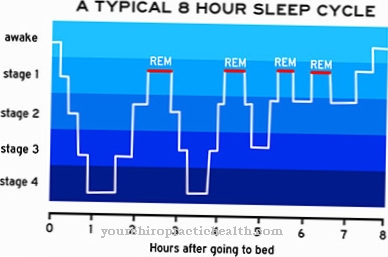
.jpg)
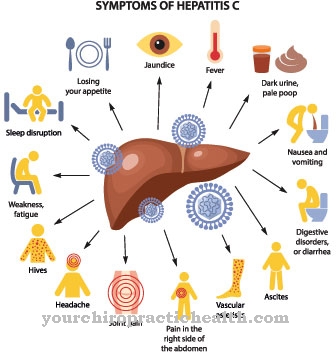
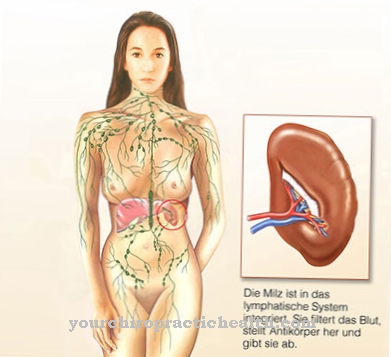

.jpg)





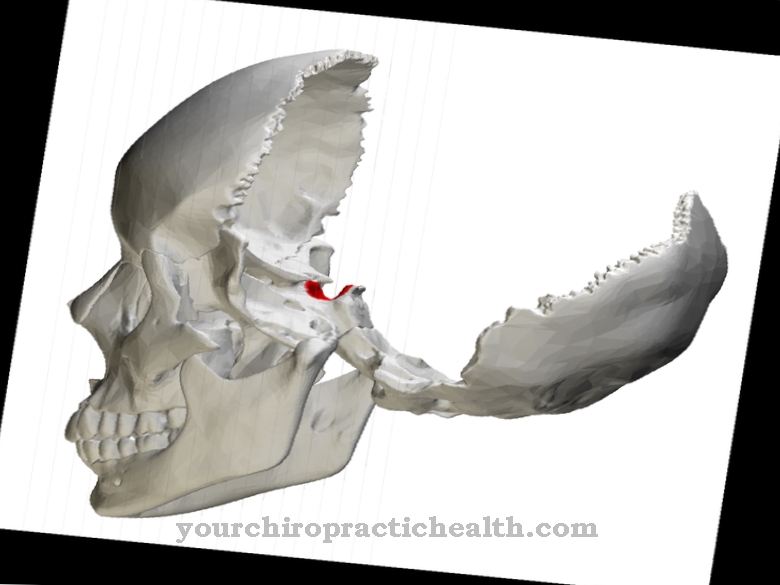


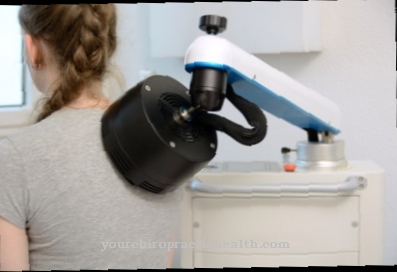
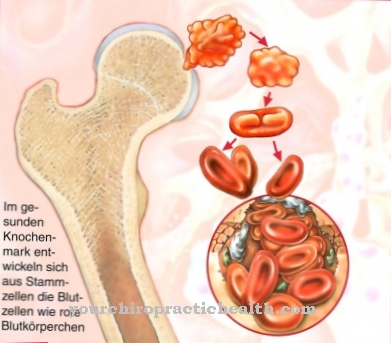


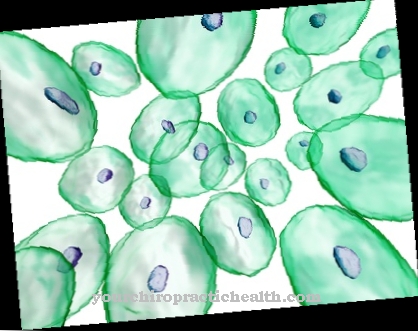



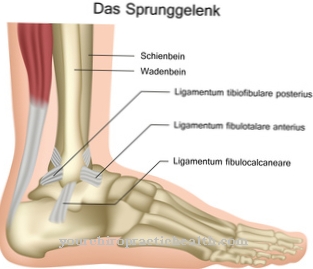

.jpg)

.jpg)
